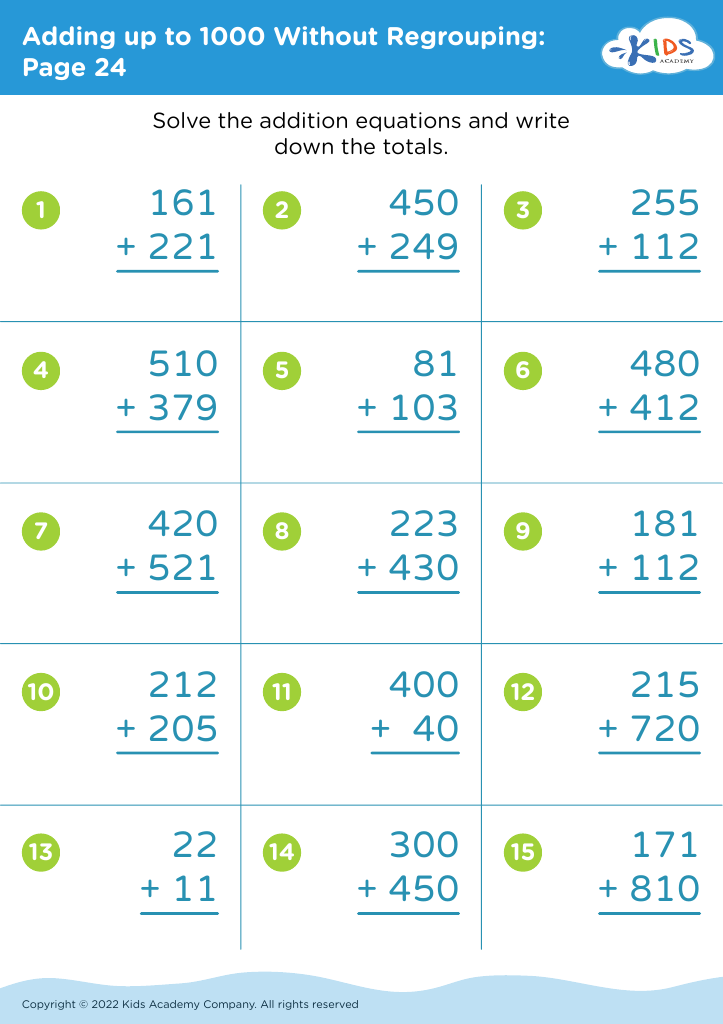Improving math skills Adding up to 1000 Without Regrouping Worksheets for Ages 5-8
3 filtered results
-
From - To
Boost your child's math proficiency with our fantastic "Improving math skills: Adding up to 1000 Without Regrouping Worksheets!" Tailored for ages 5-8, these worksheets simplify learning addition within 1000 by avoiding the confusion of regrouping. Children will enhance their numerical fluency, confidence, and understanding of addition through engaging and thoughtfully designed exercises. Perfect for home practice or classroom use, these worksheets support early math growth, offering a solid foundation for future arithmetic skills. Equip your child with the tools they need to succeed in math while enjoying interactive and educational activities today!
Parents and teachers should prioritize improving math skills such as adding up to 1000 without regrouping for children ages 5-8 because it lays the foundation for advanced mathematical concepts and everyday problem-solving skills. At this pivotal stage, children's brains are highly receptive to learning, so solidifying basic arithmetic ensures they build the confidence needed to tackle more complex calculations in the future.
Mastering addition up to 1000 strengthens numerical fluency and mental math capabilities. When children can quickly and correctly add large numbers without regrouping, they boost their cognitive abilities for future topics like multiplication, division, and eventually algebra and calculus. These improved skills not only contribute to academic success in mathematics but across all STEM (Science, Technology, Engineering, and Mathematics) subjects.
Furthermore, math competency at an early age promotes logical thinking and analytical skills, which are crucial for real-world applications, such as budgeting, telling time, and making informed decisions. These abilities improve children's self-esteem and decrease math anxiety, making learning a positive experience.
In summary, reinforcing these critical math skills ensures smoother educational progress while equipping children with essential life skills that will serve them well in their personal and professional futures.

















